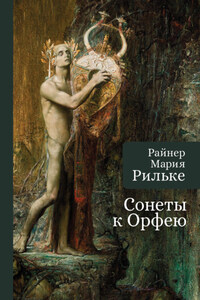Scipio moved about the room uncertainly. It was characteristic of him. Nature had given him an expression that suggested bewilderment, and, somehow, this expression had got into his movements.
He was swabbing the floor with a rag mop; a voluntary task, undertaken to relieve his wife, who was lounging over the glowing cookstove, reading a cheap story book. Once or twice he paused in his labors, and his mild, questioning blue eyes sought the woman’s intent face. His stubby, work-soiled fingers would rake their way through his straw-colored hair, which grew sparsely and defiantly, standing out at every possible unnatural angle, and the mop would again flap into the muddy water, and continue its process of smearing the rough boarded floor.
Now and again the sound of children’s voices floated in through the open doorway, and at each shrill piping the man’s pale eyes lit into a smile of parental tenderness. But his work went on steadily, for such was the deliberateness of his purpose.
The room was small, and already three-quarters of it had been satisfactorily smeared, and the dirt spread to the necessary consistency. Now he was nearing the cookstove where the woman sat.
“I’d hate to worry you any, Jess,” he said, in a gentle, apologetic voice, “but I’m right up to this patch. If you’d kind of lift your feet, an’ tuck your skirts around you some, guess you could go right on reading your fiction.”
The woman looked up with a peevish frown. Then something like a pitying smile warmed her expression. She was a handsome creature, of a large, somewhat bold type, with a passionate glow of strong youth and health in every feature of her well-shaped face. She was taller than her diminutive husband, and, in every detail of expression, his antithesis. She wore a dress with some pretensions to display, and suggesting a considerable personal vanity. But it was of the tawdry order that was unconvincing, and lacked both refinement and tidiness.
Scipio followed up his words with a glance of smiling amiability.
“I’m real sorry–” he began again.
But she cut him short.
“Oh, bother!” she exclaimed; and, thrusting her slippered feet upon the stove, tucked her skirts about her. Then, utterly ignoring him, she buried herself once more in her book.
The mop flapped about her chair legs, the water splashed the stove. Scipio was hurrying, and consequently floundering. It was his endeavor not to disturb his wife more than was necessary.
Finally he wrung out his mop and stood it outside the door in the sun. He emptied his bucket upon the few anæmic cabbages which grew in an untidy patch at the side of the hut, and returned once more to the room.
He glanced round it with feeble appreciation. It was a hopeless sort of place, yet he could not detect its shortcomings. The rough, log-built walls, smeared with a mud plaster, were quite unadorned. There was one solitary opening for a window, and in the center of the room was a roughly manufactured table, laden with the remains of several repasts. Breakfast was the latest, and the smell of coffee and fried pork still hung about the room. There were two Windsor chairs, one of which his wife was occupying, and a ramshackle food cupboard. Then there were the cookstove and a fuel box, and two or three iron pots hanging about the walls.
Out of this opened a bedroom, and the rough bedstead, with its tumbled blankets, was in full view where Scipio stood. Although the morning was well advanced the bed was still unmade. Poor as the place was, it might, in the hands of a busy housewife, have presented a very different appearance. But Jessie was not a good housewife. She hated the care of her little home. She was not a bad woman, but she had no sympathy with the harshnesses of life. She yearned for the amplitude to which she had been brought up, and detested bitterly the pass to which her husband’s incapacity had brought her.
When she had married Scipio he had money–money that had been left to him for the purpose of embarking in business, a purpose he had faithfully carried out. But his knowledge of business was limited to the signing of checks in favor of anyone who wanted one, and, as a consequence, by the time their twins were three years old he had received an intimation from the bank that he must forthwith put them in credit for the last check he had drawn.
Thus it was that, six months later, the thirty or forty inhabitants of Job’s Flat on Suffering Creek–a little mining camp stowed away in the southwest corner of Montana, almost hidden amongst the broken foothills of the Rocky Mountains–basking in the sunshine of a Sunday afternoon haze, were suddenly startled by the apparition of a small wagon, driven by a smaller man with yellow hair, bearing down upon them. But that which stirred them most surely was the additional sight of a handsome girl, sitting at his side, and, crowded between them on the seat, a pair of small children.
Scipio, in a desperate effort to restore his fortunes, and set his precious family once more on a sound financial basis, had come in search of the gold which report said was to be had on Suffering Creek for the trouble of picking it up.














